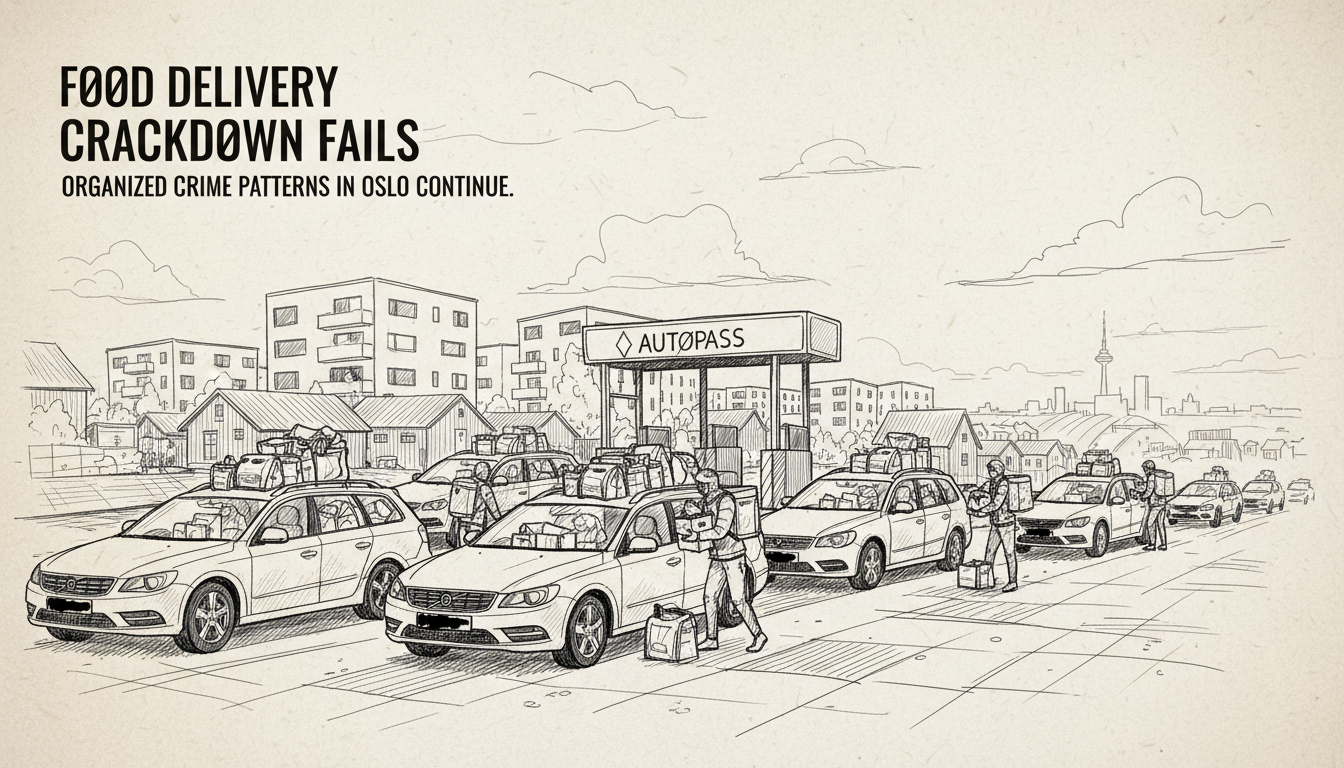Oslo police have discovered that organized crime networks continue to operate within the city's food delivery industry despite recent regulatory changes. The problem has simply shifted from foreign-registered vehicles to Norwegian cars with the same suspicious patterns.
Authorities first raised alarms about criminal infiltration of food delivery services earlier this year. They suspected criminal networks were using a constant stream of new drivers in worn-out, often dangerous vehicles. The government and economic crime unit responded by pressuring companies to clean up their operations.
Food delivery platforms Wolt and Foodora quickly implemented new requirements mandating Norwegian-registered vehicles for their drivers. The companies banned nearly 270 drivers who failed to comply with the new rules. Wolt closed over 100 delivery accounts, while Foodora suspended agreements with 168 drivers.
Initial results seemed promising. Romanian vehicle traffic in Oslo's toll ring dropped by 75% within months. Romanian cars had previously accounted for 20% of foreign traffic in the capital at their peak, with many used by food delivery drivers.
But transportation officials now report the underlying problem remains unchanged. The traffic patterns have simply transferred to Norwegian vehicles. Fjellinjen communications chief Arne-Petter Lorentzen states the criminal activity has not disappeared but adapted.
We see the same patterns now with Norwegian cars, Lorentzen explains. There is extensive driving, particularly in central areas, and continuous operation that likely requires multiple drivers per vehicle.
The toll payment data reveals concerning new developments. Among the 60 worst toll debt offenders, 46 operate delivery businesses. Together they owe approximately 3 million kroner in Oslo's toll ring.
One driver, identified only as Marius, accumulated nearly 380,000 kroner in unpaid tolls over five months. During this period, he owned 11 different Norwegian cars registered in Oslo's toll system, all over 15 years old. He typically kept vehicles for 3-6 months before selling them to others on the top debtors list.
Lorentzen believes Marius managed such high debt by operating multiple vehicles simultaneously. It is completely obvious he had several people working for him, he notes.
Payment collection companies report increased attempts to defraud the Autopass electronic toll system since the Norwegian vehicle requirement took effect. Autosync commercial director Svein Skovly describes organized networks involving multiple people and vehicles operating like a large spider web.
New regulations taking effect next year will require licenses for van transport operations. Applicants must provide police certificates of good conduct, meet competence requirements, and provide financial guarantees. These rules do not apply to private cars used commercially.
Police believe criminal networks have found loopholes in business registration systems. It is currently too easy to establish sole proprietorships digitally with just a Norwegian identification number. Investigations suggest criminal leaders obtain identification documents and register businesses in others' names.
When opportunity narrows in one area, they often find another, says police superintendent Lasse Johnsen. Crime is like water, it finds the easiest path.
The situation highlights how organized crime adapts to regulatory changes while continuing exploitation patterns. Despite vehicle registration shifts, the fundamental problems of toll evasion and suspicious operation patterns persist in Oslo's delivery sector.

